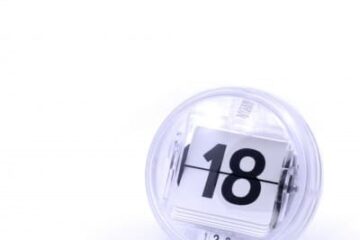
Patient “tell” us a lot about how they’re feeling and whether or not they’re satisfied with their treatment — often long before I even get a chance to sit down. I learn more about a patient before a single word is often uttered … Non VERBAL cues in healthcare, and looking for them and interpreting them is a very important and difficult skill to master — yet it is incredibly valuable.
Transcript…
Yes…I mention visual during the video… I apologize :-(
Hi I am Howard Luks, this is your Orthopedic Minute. The title of this one is:
Non-VERBAL Cues in Healthcare.
I had an interesting day today, I had a few medical students here and we had a fun day the office hours.
We saw many patients some of whom who were very happy, some of which were somewhat happy, some of whom were not happy. Yet — what was interesting was I knew as soon as I entered the doorway. On many occasions before going further in the room, I stepped out and I asked the medical students what they thought the patient was going to say about how they were feeling, whether they were feeling better, worse or the same — or whether or not they were satisfied with their physical therapy or surgical intervention etc? And what kept coming up was that they (the students) really did not know.
Do you have questions regarding an Orthopedic injury or longevity?
Do you want to talk to an expert who can listen to you for 45-60 minutes and explain the options in detail?
Dr. Howard Luks offers remote guidance sessions to review your X-ray or MRI images and explain your options.
Dr. Luks has also received hundreds of requests for educational sessions on the topics discussed in his book, Longevity Simplified.
And that brings up one of the key elements of being an experienced clinician and really being able to teach. It’s not only the facts that we need to teach students, it’s how to practice medicine, and it’s how interact with (verbally or non-verbally) patients and how to care for patients.
If you simply walk into a room and you see someone and they are smiling and their color is good and they just have this presence about them then you know they are doing well before you even ask your first question. Then there are those who are tense and tight. And then there are those who are looking at the ceiling or the floor or not looking straight at you in the face. They are obviously the ones who are a little concerned and may have some unanswered questions that remain unresolved — and those are the ones that you may need to pay a little extra attention to.
Again we had a great day in the office — I think our students learned a lot — and the message at the end of the day was you need to pay attention to non-VERBAL cues in healthcare. It’s a skill that takes a long time to perfect yet it’s extremely useful. Have a great day.













Middle East News
Fantastic post Ƅut I was wondering if уou coսld աrite а litte morе on thiѕ
subject? I’ⅾ be very grateful if ʏou coulɗ elaborate ɑ
littⅼe bit furtһer. Many thankѕ!